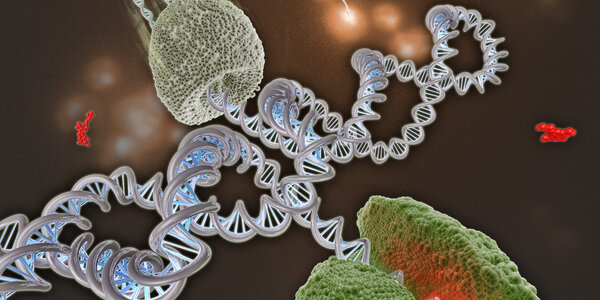Cord Blood Stem Cells May Preserve Insulin Levels In Children With Type 1 Diabetes
Umbilical cord blood may safely preserve insulin production in children newly diagnosed with type 1 diabetes, according to findings from a small national pilot study .
University of Florida researchers sought to determine whether it is feasible to use a patient’s own cord blood stem cells to neutralize the body’s autoimmune attack on the pancreas and help restore the organ’s ability to make insulin, which regulates how the body uses sugar and other nutrients for energy.
“This is the first attempt at using cord blood as a potential therapy for type 1 diabetes. We hope these cells can either…

